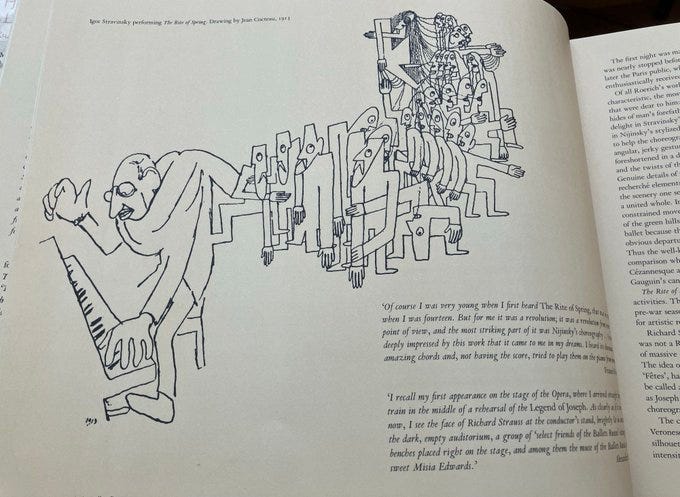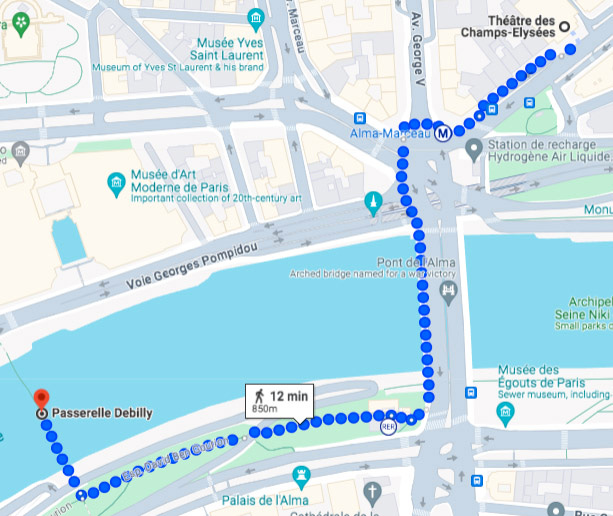le sacré de l'été
Dionysius, Da Vinci, and all the rest of us deserved better than Barbara Butch

The French often express their version of freedom by upending shibboleths. In music, the night that Le Sacre du Printemps debuted famously caused many of the concertgoers to riot. The site of the Rite riot of 1913, Théâtre des Champs-Élysées, is not so far from the Passerelle Debilly – it’s only a twelve minute walk – where another kind of upending has occurred to open the Olympics of 111 years later. Does Carl Van Vechten’s account of that long-ago night remind you of anything you’ve heard about recently?
A certain part of the audience was thrilled by what it considered to be a blasphemous attempt to destroy music as an art, and, swept away with wrath, began very soon after the rise of the curtain, to make cat-calls and to offer audible suggestions as to how the performance should proceed. The orchestra played unheard, except occasionally when a slight lull occurred. The young man seated behind me in the box stood up during the course of the ballet to enable himself to see more clearly. The intense excitement under which he was labouring betrayed itself presently when he began to beat rhythmically on top of my head with his fists. My emotion was so great that I did not feel the blows for some time.
[His emotion was so great, in fact, that he neglected to tell his readers that he attended the Rite’s second performance, not its first – a fact which didn’t come out until a letter of his was uncovered in 2013.]
Catholics and Christians were beating their coffee tables while watching the blasphemous Last Supper segment of the Olympics’ Opening Ceremonies on television. The present-day Olympian rage generally came from a different class of people than those who exhibited such ire on Stravinsky’s opening night, which came from the more usual bourgeoisie concert crowd of doctors and lawyers and friends of Gertrude Stein. As such, the Olympics orchestraters missed their target: to offend in the true French style, one must offend the status-seeking professional, not the far more meek, churchgoing, vulnerable homme ordinaire.
But the hommes ordinaires were indeed offended, I among them. One substitutes – one blasphemes – the core act of religious belief at considerable peril. Replacing the Christ of the renaissance with an activist lesbian deejay named Barbara Butch is no mere violation of the E♭ Dorian key and ordinarily quiet choreography. Some are still boycotting watching the Olympics, a move which means that many hommes will be spared ceaseless pharmaceutical commercials for asthma, erectile dysfunction, diabetes, and depression, maladies that often can derive from watching too many commercials and too much television in the first place. Perhaps taking a break from summer television is a measure we’re subconsciously taking to preserve their own health.
Pondering Paris in better days, I’ll continue to marvel at, and draw from the inspiration of, the most beautiful and useful book in our collection: The Art of the Ballet Russes: The Russian Seasons in Paris, 1908-1929. And I very much doubt that my very different category of perturbed hommes – not a few hundred bourgeois Parisian concertgoers of 1913, but to-day’s millions of NBC-beholden Christian proles and other common men and women – will turn around within a year’s time and embrace what has so much irked and even insulted them.




